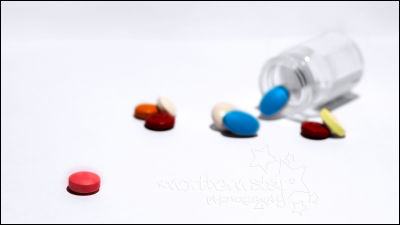Study results showing that long-term aspirin dosing reduces cancer mortality

It is often used as an analgesicaspirinA study result that cancer mortality decreases by announcing it over a long term was announced.
In medicines marketed in Japan, headache medicineBufferinAlthough aspirin is also included in aspirin, in this experiment low-dose aspirin prescribed by the doctor was used, about 20 years of continuous administration to the subject, study what kind of results will appear as a result He said that. As a result, in addition to prevention of cardiac diseases and strokes which had been said previously, it is found that there is also an action to reduce risk against cancer.
Details of the experiment are as follows.Daily aspirin 'can cut cancer death rate by 50 per cent' | Mail Online
Studies have shown that taking aspirin daily can reduce the risk of death from major cancers. Researchers in the UK have found conclusive evidence that aspirin has been administered continuously for five years, cancer mortality shrinks by a third. In addition, for those who received aspirin for a long period of time, the risk of cancer is said to have decreased.
Furthermore, it seems that if a person who is not a cardiovascular disorder is taking 75 mg (a quarter of the standard 300 mg tablet), it can also prevent heart attacks and strokes. People with heart disease who would already be prescribing low doses of aspirin from a doctor in the sense of preventing heart attacks and strokes will also prevent cancer.
Professor Peter Rothwell at John Radcliffe Hospital conducted research on approximately 26,000 subjects. This study divides cardiac patients into groups that receive aspirin every day and groups that gave placebo (placebo) and continues administration to each. Since the therapeutic effect on cardiac disease has already been reported, researchers expect experiments in expectation of the results as to whether cancer mortality will decrease or not, and as a result, aspirin reduces cancer mortality due to cancer It turned out to show a dramatic effect on.

In the group that continued to drink aspirin for 5 years, the mortality rate by all cancers in the group decreased by 34%, among which the mortality rate due to stomach cancer was 54%, falling to about half. After 20 years, cancer mortality rate was 20% lower in aspirin administered group. In addition, it is clear that the tendency that it takes 10 years for effects to appear in stomach cancer and colon / rectal cancer and 15 years for prostate cancer is also revealed. To obtain data on breast cancer and uterine cancer, the percentage of women in the group seems to be too small, but both seems to be on a downward trend.
Professor Rothwell said, "The findings from this experiment proved for the first time that taking aspirin reduces the mortality rate by cancer.Afore this study, when a healthy middle-aged person took aspirin for a prolonged period of time, And the side effect of bleeding in the stomach offset the benefits of prevention of heart attacks in general but this time the benefits of a decrease in the mortality rate by major cancer this time, It can be said that we surpassed that. "
However, Professor Alastair Watson of the University of East Angli said, "This study has proved to be a great effect on the prevention of aspirin cancer but the risk of bleeding in the stomach caused by aspirin is considerably large for some people.Aspirin Before you decide to take, you should check well about that, "he points out not to overlook risks sweetly.
Professor Rothwell himself also started to drink aspirin from the mid 40's. However, taking medicines for a long period of time, which is about one third of your life, may cause unexpected side effects, so consult with your doctor to make the decision as it is at your own risk I'm warning you.
It is not an exaggeration to say that diseases such as cancer, heart attack, and stroke are the top three diseases that are distracting from middle and aged people, but the result that long-term take of aspirin will be a preventive measure is that such research The risk of reducing it may be a hope for sending a healthy old age.
Related Posts:
in Note, Posted by darkhorse_log







